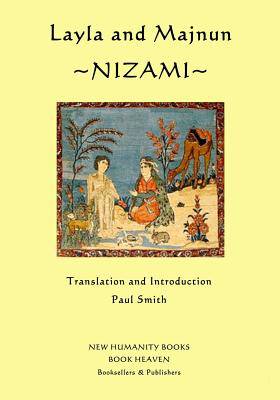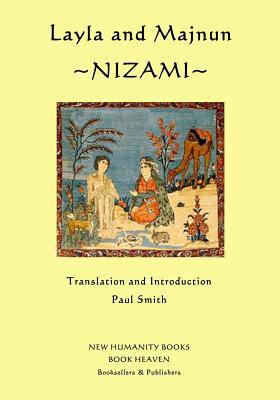
- Retrait gratuit dans votre magasin Club
- 7.000.000 titres dans notre catalogue
- Payer en toute sécurité
- Toujours un magasin près de chez vous
- Retrait gratuit dans votre magasin Club
- 7.000.0000 titres dans notre catalogue
- Payer en toute sécurité
- Toujours un magasin près de chez vous
Description
LAYLA AND MAJNUN: NIZAMI Translation & Introduction by Paul Smith It is impossible to underestimate the effect of Nizami's 'Layla and Majnun' on the world over the past 800 years. Many poets throughout this period have copied or been influenced by his story of the young lovers. Many Master-Poets besides Ibn Arabi, 'Attar, Rumi, Sadi, Hafiz and Jami have quoted from him or like him have used the story of the desperate lovers to illustrate how human love can be transformed into divine love through separation and longing. It is said that no one has painted a more perfect picture of women in Persian Literature than Nizami. Paul Smith has kept to the correct rhyme-structure of this long masnavi epic poem, while retaining the beauty of the poetry, the mystical meaning and simplicity of the form. He has included a long Introduction on his life and chapters on all of the works of this great Master/Poet. Selected Bibliography. Large format paperback... 7" x 10" 239 pages. COMMENTS ON PAUL SMITH'S TRANSLATION OF HAFEZ'S 'DIVAN'."It is not a joke... English version of all the ghazals of Hafez is a great feat of paramount importance. I am astonished. If he comes to Iran I will kiss the fingertips that wrote such a masterpiece inspired by the Creator of all. " Dr. Mir Mohammad Taghavi (Dr. of Literature) Tehran. "Superb translations. 99% Hafez 1% Paul Smith." Ali Akbar Shapurzman, translator and knower of Hafiz's Divan off by heart."I was very impressed with the beauty of these books." Dr. R.K. Barz. Faculty of Asian Studies, Australian National University. Smith has probably put together the greatest collection of literary facts and history concerning Hafez." Daniel Ladinsky (Penguin Books author). Paul Smith is a poet, author and translator of many books of Sufi poets from the Persian, Arabic, Urdu, Turkish, Pashtu and other languages including Hafez, Sadi, Nizami, Rumi, 'Attar, Sana'i, Jahan Khatun, Obeyd Zakani, Mu'in, Amir Khusrau, Nesimi, Kabir, Anvari, Ansari, Jami, Omar Khayyam, Rudaki, Yunus Emre, Lalla Ded, Rahman Baba, Baba Latif and others, and his own poetry, fiction, plays, biographies and screenplays. New Humanity Books amazon.com/author/smithpa
Spécifications
Parties prenantes
- Auteur(s) :
- Editeur:
Contenu
- Nombre de pages :
- 258
- Langue:
- Anglais
Caractéristiques
- EAN:
- 9781500423933
- Date de parution :
- 09-07-14
- Format:
- Livre broché
- Format numérique:
- Trade paperback (VS)
- Dimensions :
- 178 mm x 254 mm
- Poids :
- 453 g

Les avis
Nous publions uniquement les avis qui respectent les conditions requises. Consultez nos conditions pour les avis.






